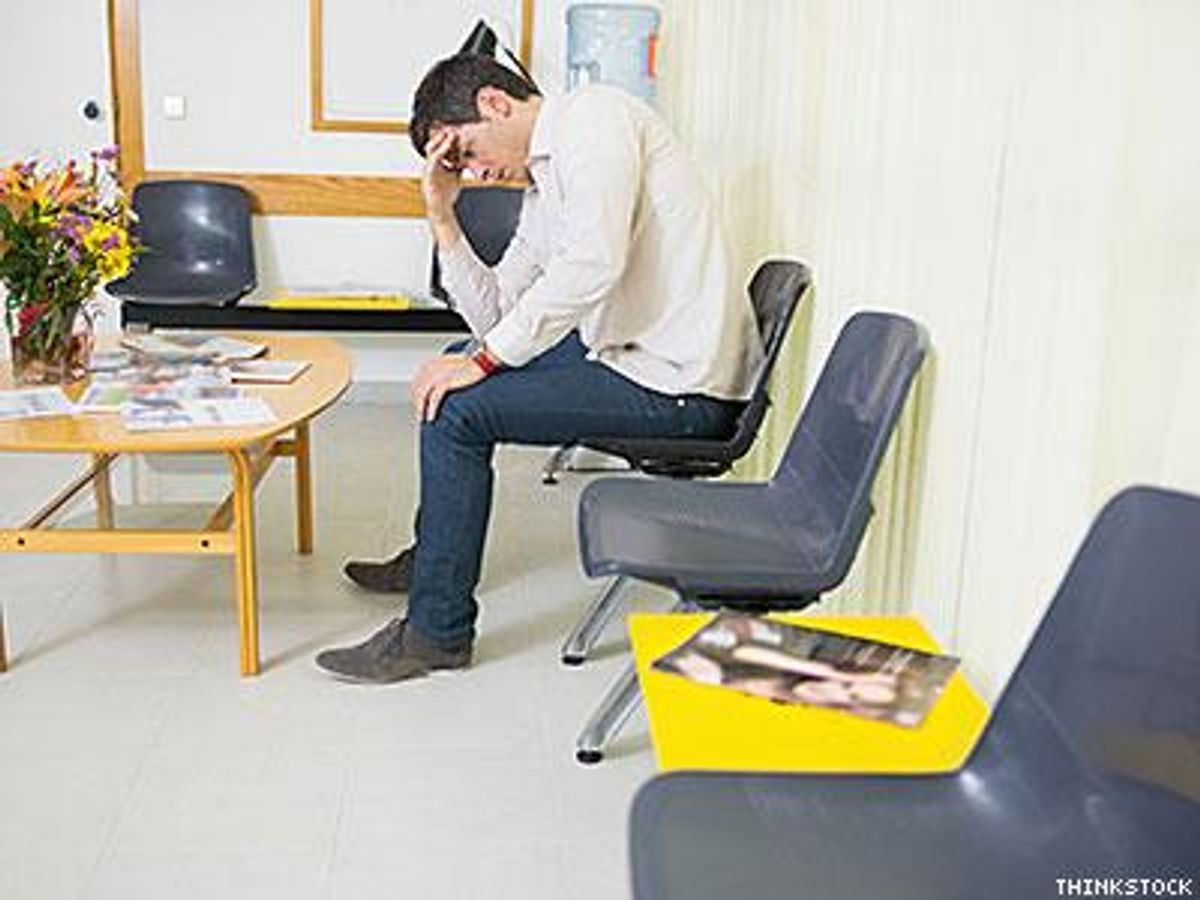All Rights reserved
By continuing to use our site, you agree to our Private Policy and Terms of Use.
The sharp pain in his abdomen had been with him for two weeks, but Diego, then a 20-year-old undocumented college student, was used to waiting to see a doctor.
His mother and stepfather had always provided a loving, supporting environment for him when he was growing up; one night, he woke his mother to tell her, "I like boys." She responded, "You woke me for that? Go back to sleep."
But what they couldn't provide was reliable health care. Like many undocumented immigrants, they had no health insurance and put off all but the most essential care until a full-blown emergency arose. They finally rushed him to an emergency room late one night when he awoke with a high fever and violent chills. Doctors said that his appendix was about to burst and operated immediately. The price tag for his emergency appendectomy was $10,000.
While the Affordable Care Act is eventually expected to reduce California's rate of uninsured people by half, a recent University of California, Los Angeles, study estimates that up to 3.4 million people -- a 10th of the state's population -- will remain uninsured. Half of them will be undocumented immigrants. Three out of four will be Latino. And up to 250,000 of them, like Diego, will be LGBT.
The state's estimated 250,000 LGBT immigrants bear both the stigma of their sexual orientation or gender identity and the stigma of being undocumented. Not only can they generally not access quality, affordable health care, but, like other LGBT people, they suffer the effects of pervasive violence, hostility, and discrimination. That translates into significant disparities in health and well-being compared to the general population. LGBT youth are already up to four times more likely to attempt suicide than their non-LGBT counterparts, and LGBT adults are more likely to suffer from depression and substance abuse, and are less likely to be insured, than other adults. Undocumented LGBT people must shoulder both burdens.
Providing California's substantial population of undocumented immigrants with quality, affordable health care doesn't just make sense from a public health standpoint; it's economic common sense. Undocumented Californians make up 9 percent of the state's workforce and pay an estimated $2.7 billion in state and local taxes. A recent UCLA study estimated that if all undocumented immigrants were removed from the state, it would come at a cost of nearly 4 million jobs and shrink the economy by more than $300 billion. Yet they are unable to obtain benefits from the health care, Social Security, and other systems to which they contribute.
Hospital emergency rooms are obligated by law to treat everyone in need of care, regardless of ability to pay, something that even the staunchest foes of comprehensive immigration reform admit is necessary. In 2010 a visit to the hospital emergency room cost on average $1,349, compared to the average cost of $145 for a routine checkup. Undocumented immigrants, cut off from health coverage and therefore from preventive care, contribute to the estimated $176 billion a year in uncompensated emergency room visits for which we all shoulder the cost. California has acted to extend Medi-Cal (the state-funded health insurance program for low-income residents) to undocumented immigrants younger than 19, but that clearly addresses the problem only partially. Equality California is working with Sen. Ricardo Lara to support the Health for All Act, which would bring coverage to the adult population, as well. Ironically, on a national scale, the ACA may ultimately make a bad situation worse by cutting the current $20 billion in reimbursements the government pays to so-called safety net hospitals, mostly in poor or rural areas.
We all interact with undocumented LGBT immigranys every day, in the workplace, in restaurants, socially, and even within our families. Undocumented women generally lack access to screenings for breast cancer and other illnesses that hit lesbians in disproportionate numbers; HIV-positive immigrants often can't get lifesaving drugs; and transgender immigrants frequently are unable to access the treatments they need. As during the darkest moments of the AIDS epidemic, it falls to all of us to help those among us who have no voice and ensure that all LGBT people have access to health care. Supporting the Health for All Act is a good start.
Equality California has partnered with clinics, immigration organizations, and local LGBT groups across California to train health care workers about the special needs of LGBT immigrants, and is working to extend coverage to all Californians regardless of age or immigration status. In fact, Americans understand that our society is stronger when everyone has access to health care; surveys have consistently shown strong national support for a pathway to citizenship for undocumented immigrants, and a 2013 poll by the Kaiser Family Foundation found broad support for extending Medicaid benefits to immigrants with provisional status.
The LGBT community coalesced into a potent social and political force in the 1980s when an uncaring nation failed to respond to the AIDS epidemic. This too is a health crisis, affecting as many as 1.1 million members of the LGBT community nationwide. Our community has a tradition of standing up for the most vulnerable among us. It's time for all of us to come together to do so again.



















































































Viral post saying Republicans 'have two daddies now' has MAGA hot and bothered